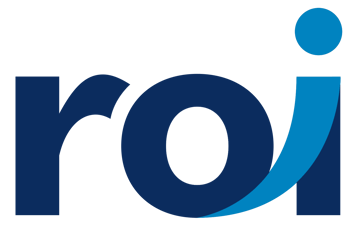A recent Aberdeen HR solutions report finds that more than 50% of organizations have inefficient Human Resource departments. While HR is responsible for managing everything from payroll to benefits to recruiting to employee onboarding and retention, its relationship with the payroll department is one of special significance. Before efficiency gains can be created in HR, it is important to identify how HR processes and system data specifically impact payroll.

HR Data Feeds Payroll, For Better or Worse
HR processes and systems are the source of data related to employee demographics, compensation benefits, and much more. HR data directly feeds Payroll and drives important calculations related to paychecks for employees and contractors, including (but not limited to):
- Data feeds that go to the Time and Attendance system (time records sent to Payroll)
- Who is paid and where to send the payment (employee name & address)
- Employee compensation (pay rate)
- Calculation of Taxes (local, state, federal)
- Calculation of Overtime (exempt, non-exempt status)
- Receipt of Pay (direct deposit, paper check)
- Pay eligibility (status of Active, Severance, Termination Pending, Terminated, etc.)
- Additional Pay Eligibility (job code drives shift tables for special pay)
- Benefits deductions (Benefits enrollments via Pre/Post Tax deductions)
The Domino Effect of Inaccurate HR Data
When HR data is inaccurate and is processed via payroll, it can create a host of issues that may result in an incorrect paycheck, which can lead to…
Employee distractions while trying to contact someone in Payroll and/or HR to resolve the issue. This distraction can then impact:
- employee productivity
- patient care & safety (for healthcare industry employees)
- tax reporting & payments
- tax filings (requiring revisions for significant issues)
This ripple effect of inaccurate source data is common for many organizations, increasing the need for manual resource intervention to untangle and correct the problem.
HR vs. Finance: The Unnecessary Gap
HR departments manage all aspects of hiring, empowering, and engaging high-performing resources who support the mission, vision, and values of each organization. Payroll is a function of finance to pay employees and contractors at the competitive industry compensation rates set by HR.
Good organizations invest in intra-departmental efficiencies, while great organizations create interdepartmental efficiencies with strong communication, integration, and collective success. In order for HR and Payroll departments to address their individual gaps and reduce manual effort, each must view the other as a much-needed ally with ongoing interaction and sharing of mutually beneficial information.
Three Strategies to Improve the HR/Payroll Dynamic
- HR and Payroll must have active ongoing communications to help ensure that data affecting payroll remains a focus while business processes and workflows evolve as the business ebbs and flows.
- Sharing clearly defined roles and responsibilities across departments will help the team to identify the data each area is responsible for to allow for ongoing data auditing.
- Review and validate these data audit examples below for inaccuracies:
- Pay Rate changes greater than 10%
- Job/Position changes that can impact pay based on promotions/demotions
- Location and address changes that impact taxes
- Limits related to deferred compensation contributions, HSA contributions
- Tax withholdings for local, state, federal (including FICA)
Putting these approaches into practice will contribute to your success as an HR leader, as you formalize your partnership with Payroll. You will be able to more quickly alleviate data issues, reduce manual reconciliation efforts, improve your payroll processing cycle, and enhance the integrity of your HR/Payroll systems. As you start to prepare for year-end, think about how you this improved HR/Payroll partnership will support your goals for 2019 and 2020.
Optimal Processes Before Technology
In our 20 years of delivering ERP, EHR, and Revenue Cycle services, ROI has found that working with clients to correct process, data, and people related issues first always leads to a more comprehensive and successful system implementation or optimization project later. Whether you are using legacy or modern, hosted or cloud-based solutions for your HR and Financial systems, you are in the driver’s seat of your business processes and workflows. Our team has over 20 years of functional experience in HR and ERP solutions, with the passion to help you on your journey to HR and Payroll excellence.
For more information, contact us at https://roihs.com/contact-us
ABOUT ROI HEALTHCARE SOLUTIONS
ROI is a CloudSuite and Birst specialized Infor Alliance Partner with hundreds of Infor engagements under our belt. Our team is passionate, collaborative, and we work with customers to identify optimal processes and setup systems to enable those scenarios, for the benefit of the entire organization. Our certified and experienced Consultants posses over 10 years of functional and technical expertise.
Call us today at 678.270.2867
